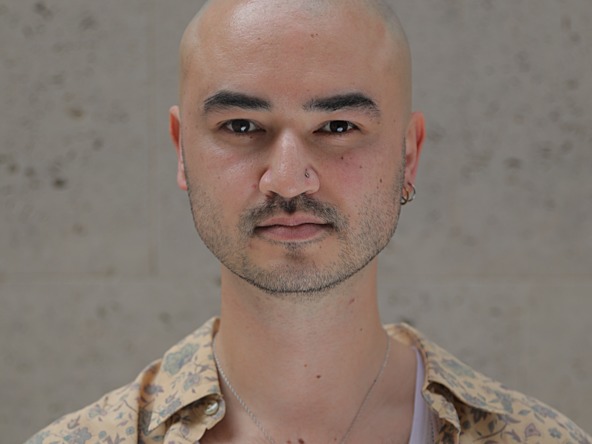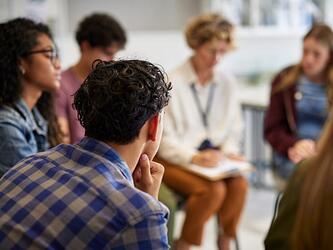Q&A: Will Oshiro de Groot on building best practice

The MRS EDI Changemaker award, sponsored by Truth Consulting, began five years ago, celebrating individuals who promote representation, diversity, inclusion and equality in their work.
This year’s winner, Will Oshiro de Groot, is senior insights manager, D&I, at The Lego Group – a dream job for many! He has the first client role of its type that I have ever come across – with a specific responsibility to drive EDI best practice across the company’s global insights function: a great initiative that other companies should replicate.
I caught up with Will to talk about his work and his views on equity, diversity and inclusion (EDI).
Mark Thorpe: What are your reflections on winning the award?
Will Oshiro de Groot: For me, it felt important to raise visibility of the work and I wanted to raise awareness of the fact that this is happening brand-side in a research context. I think often we're relying on our partners to bring these solutions, but I really wanted to show that it is happening brand side. I don't know many other people that are doing this kind of role.
Tell me a bit more about your role.
This is my first brand-side role, and I'd never thought about going brand-side until I saw this role. It just sounded like a dream really, and wove together all the threads of the things that I've been interested in during my career – global cultures, youth, creativity, representation in research – but I'd never seen a research role that was sort of dedicated to this space. For a brand that has so much reach, influence and impact, it just felt like an incredible opportunity.
In terms of the role itself, it’s sort of split into two. On one side, I'm looking at our internal research practices in terms of how we evolve to maximise inclusion across the research journey across the teams that sit within global insights. The other half of the role is delivering research projects with a focus on underrepresented audiences and communities, predominantly for my stakeholders in global brand development. The work also involves our in-house creative agency, OLA as well as design.
Tell me a bit more about you, your passion for EDI and what is on your radar.
My values are the starting point for everything that I do. That goes for life outside work and for my professional life. I have a mixed cultural background and have experienced the world through a lens of exclusion at various points, both in life and at work. So, for me it’s been really important to bring that alternate perspective in to drive innovation and creative thinking.
There are two perspectives for me – one from the point of view of my impact on the work we do and then also from a researcher point of view in a professional context. Having experienced [situations] in my agency-side life, where researchers and respondents are put in contexts that are not necessarily safe, has shaped my views on practice. A huge part of what drives me is ensuring the safety of researchers and participants in a research context, where we may be bringing in our own personal lived experiences and identities. It’s about psychological safety. As researchers we expose ourselves to lots of things, and we expose participants to lots of experiences. The other thing is around research design itself and how we embed reciprocal value in it, moving away from transaction-based design between researcher-participant. We need to think about both of these and do better.
So much of it goes under the radar in terms of consideration. We assume people can go out there in the world and think very little about their physical safety, but also their psychological safety and how they deal with situations they're put in.
Ultimately, it’s about the wellbeing and the welfare of people and teams; that’s a critical part of the consideration set for any sort of research journey. A key question is: how do you raise the standards of the work that you’re doing? I think it’s by interrogating it through multiple lenses and bringing in different kinds or more voices.
Agencies need to change; they need to evolve. Culturally, the conversations outside work [in agencies] were far more culturally rich and multidimensional than the conversations I was having internally – and I couldn't get my head around it. I couldn't understand why it felt so one-dimensional. I have a real desire to bring depth and dynamism into those conversations and create a culture of learning. The workplace or the organisation can become a place of learning –a playground for learning.
How does this perspective around EDI manifest itself in the Lego brand?
Creating a culture where people feel like they're able to ask questions that might be uncomfortable is often a barrier. We drew up a what we call a relational commitment within global insights, and that was drawn up in partnership with the vice-president of global insights, Ian Busch. It’s been shared with everyone, and it outlines what our commitment is to each other and to the people that we're researching with.
My team and the research teams in global insights have regular check-ins and forums where we encourage people to share recent examples of where they've embedded this [EDI] thinking into research design, with demonstrable impact and outcomes. That then creates a forum for people to engage in the conversation, ask questions, and showcase the progress that they are making.
Mark Thorpe is board director at Truth Consulting

We hope you enjoyed this article.
Research Live is published by MRS.
The Market Research Society (MRS) exists to promote and protect the research sector, showcasing how research delivers impact for businesses and government.
Members of MRS enjoy many benefits including tailoured policy guidance, discounts on training and conferences, and access to member-only content.
For example, there's an archive of winning case studies from over a decade of MRS Awards.
Find out more about the benefits of joining MRS here.














0 Comments